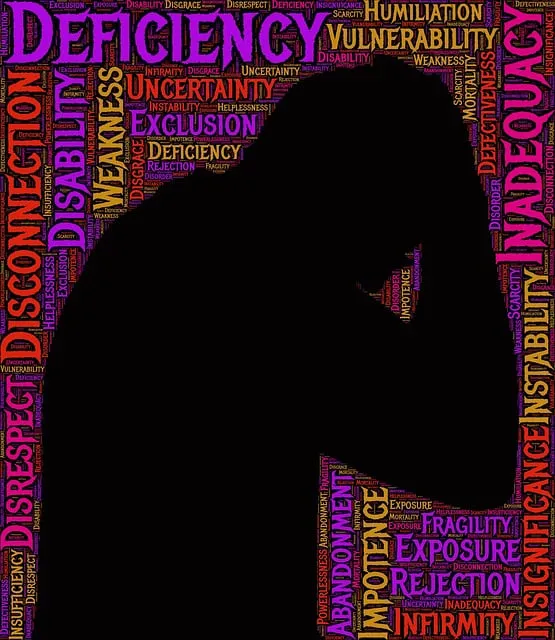Castle Rock Kaiser Permanente's mental health providers are trained in crisis intervention, offering swift and tailored support to individuals experiencing acute distress or trauma. They combine structured protocols with flexibility to manage diverse crisis scenarios effectively. Through proactive measures like Cultural Competency Training and Community Outreach Programs, the organization fosters a stigma-reducing environment, ensuring accessible care for all. In crises, their strategies include active listening and evidence-based techniques like breathing exercises, promoting emotional regulation and long-term mental well-being among supported individuals.
“In today’s fast-paced world, effective crisis intervention is an essential component of mental healthcare. This article provides a comprehensive guide for Castle Rock Kaiser Permanente mental health providers, offering a ‘brief overview’ and practical strategies to navigate crises effectively. We explore the pivotal role that organizations like Castle Rock Kaiser Permanente play in supporting mentally healthy communities. By delving into key techniques, we aim to empower professionals to make a significant impact during challenging situations.”
- Understanding Crisis Intervention: A Brief Overview for Mental Health Providers
- The Role of Castle Rock Kaiser Permanente in Mentally Healthy Community Support
- Practical Strategies and Techniques for Effective Crisis Intervention
Understanding Crisis Intervention: A Brief Overview for Mental Health Providers

Crisis intervention is a critical skill set for mental health providers, especially those at organizations like Castle Rock Kaiser Permanente. It involves rapid and effective responses to individuals experiencing acute psychological distress or a sudden traumatic event. The primary goal is to stabilize the individual, ensure their safety, and provide immediate support while connecting them to longer-term care. This process requires a structured yet flexible approach that can adapt to diverse presentations of crisis.
For mental health providers, understanding the dynamics of crisis intervention is crucial for effective risk management planning. It involves assessing the situation, identifying the individual’s needs, and implementing appropriate strategies tailored to their unique circumstances. Building resilience in clients through proactive measures like depression prevention techniques can also mitigate the impact of future crises. By integrating these practices, Castle Rock Kaiser Permanente mental health providers can ensure they are equipped to handle a range of crises, fostering better outcomes for those they support.
The Role of Castle Rock Kaiser Permanente in Mentally Healthy Community Support

Castle Rock Kaiser Permanente plays a pivotal role in fostering mental health within its community by offering diverse services and programs tailored to various needs. Their team comprises dedicated mental health providers who are equipped with the latest evidence-based practices, ensuring individuals receive comprehensive care. The healthcare provider’s commitment extends beyond clinical practice; they actively engage in initiatives like Cultural Competency Training to address the unique challenges faced by diverse populations. This training equips both staff and community members with the skills to navigate cultural barriers, promoting inclusive mental health support.
Furthermore, Castle Rock Kaiser Permanente has implemented successful Community Outreach Programs that bridge the gap between healthcare and the public. These programs focus on educating communities about mental illness, reducing stigma, and encouraging early intervention. Through these efforts, they strive to create a supportive environment where individuals feel comfortable seeking help without fear of judgment or discrimination.
Practical Strategies and Techniques for Effective Crisis Intervention

In moments of crisis, quick and effective intervention can be a lifesaver. Castle Rock Kaiser Permanente mental health providers emphasize practical strategies for addressing acute distress. One key approach involves active listening, where professionals give full attention to the individual’s concerns, validating their feelings, and ensuring they feel heard and understood. This technique fosters trust and encourages open communication, crucial for resolving conflicts and managing intense emotions.
Additionally, mental illness stigma reduction efforts play a vital role in crisis intervention. By framing discussions around understanding and empathy rather than labels, providers can create a safe space for individuals to express their experiences without fear of judgment. Promoting emotional regulation through breathing exercises, grounding techniques, and cognitive reframing empowers individuals to manage stress and anxiety effectively during crises. These evidence-based methods not only support immediate stability but also equip individuals with valuable tools for long-term mental well-being.
In light of the crucial role that mental health providers play in supporting communities, the strategies outlined in this article offer a valuable toolkit for effectively navigating crises. By understanding the foundational concepts of crisis intervention and leveraging the resources provided by organizations like Castle Rock Kaiser Permanente, professionals can enhance their ability to assist individuals in need. The practical techniques shared ensure that mental health providers are equipped to offer timely, compassionate, and evidence-based support, fostering resilient communities where folks can thrive.






